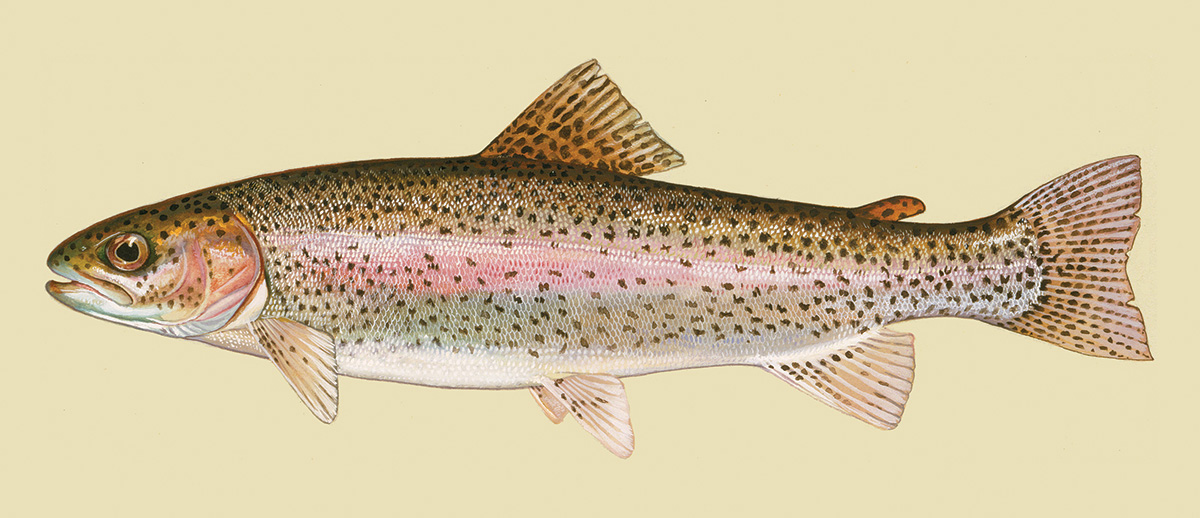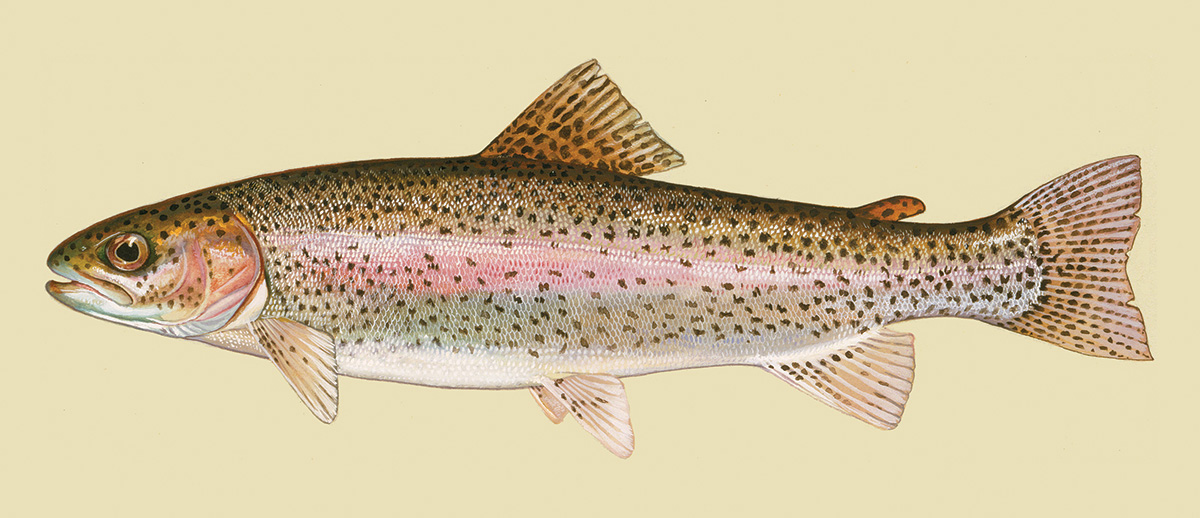Examining a New Kind of Trout
Aquaculture researchers study gut microbes of fish bred to thrive on soy
To Andreas Brezas, the trout he works with at UI’s Fish Culture Experiment Station in Hagerman, Idaho, are the Holy Grail.
On the outside, they look like typical rainbow trout. But on the inside, they’re different — from their genes to the food they can digest to the bacteria that flourish in their guts.
“Everybody would like to look inside this fish and get answers,” Brezas says.
This selectively bred, one-of-a-kind strain of trout is the pinnacle of years of collaborative research among the UI Aquaculture Research Institute (ARI), the USDA’s Agriculture Research Service and Idaho’s aquaculture industry. Soon, the majority of the nation’s farmed trout could be descended from the strain.
Unlike typical farmed trout, which eat feed made primarily from other fish, called fishmeal, these trout can eat a less expensive, more sustainable soy-based diet.
In their seventh generation, the fish grow twice as big on soy as regular trout do on fishmeal, says ARI director Ron Hardy. Now that the researchers have successfully developed this long sought-after trait, they’ve shifted their focus to understanding exactly why the fish can thrive as it does.
Good for the Gut
One surprising difference in the vegetarian trout is the population of bacteria that grow inside them, or their “gut microbiome.” As in humans and other animals, the gut microbiome affects fishes’ lives.
“We can sometimes consider the microbiome an organ,” Brezas says. “It interacts with the brain, with the intestine, with the whole organism.”
Normal trout develop intestinal irritation when fed soy, but the selected trout do not, Hardy says. To find out why, ARI sent samples from both groups of fish to research partners at Washington State University. The WSU researchers noticed a strain of bacteria that can cause inflammation – but only living in the non-selected fish.
“There are very few studies showing in any animal that the strain affects the microbial population,” Hardy says. “We’ve always looked at feed as what goes in and comes out, not what stays. We’re now really thinking about what happens in the gut.”
Both the type of feed and the strain of fish could be influencing which bacteria grow in the gut and why. For example, Hardy says, soybean meal could be a prebiotic: a food that encourages the growth of good bacteria. And fishmeal feed, normally considered sterile, may pick up other bacteria on its way from factory to farm.

Good for Humans
Hardy is now working with UI Distinguished Professor of Biological Sciences Larry Forney in the College of Science to sequence the bacterial DNA and find out exactly which species are living in the guts of different fish.
Understanding how differences in food, physiology and genetics affect fish intestinal health can help both the aquaculture industry and humans, Hardy says.
“I don’t see why some of what we’re finding in trout can’t someday help with intestinal issues in people,” he says.
Good for Soy Farmers
The ARI’s special strain of trout is good not only for the aquaculture industry, but also for another group of farmers.
“For us in soy, it allows us to serve a new and growing industry in aquaculture,” says Bridget Owen, executive director of the Soy-Aquaculture Alliance, which has supported ARI’s research for several years.
The connections between the soy and farmed-fish industries have grown over the past decade, and Owen expects them to keep growing, especially in the United States.
“As we’ve looked at aquaculture, it’s been an area in which soy farmers are really invested and interested,” Owen says. “Aquaculture is the fastest-growing food sector on earth, and the opportunity to participate is fantastic for our farmers and our production.”
The team at the ARI is key to helping keep that growth going.
“We recognized early on the expertise of the U.S. aquaculture research community, and that’s really been something that’s been a benefit to having here at home,” Owen says. “We recognize that Dr. Hardy and his team are leaders in that community.”
- Article by Tara Roberts, University Communications and Marketing and the Office of Research and Economic Development







